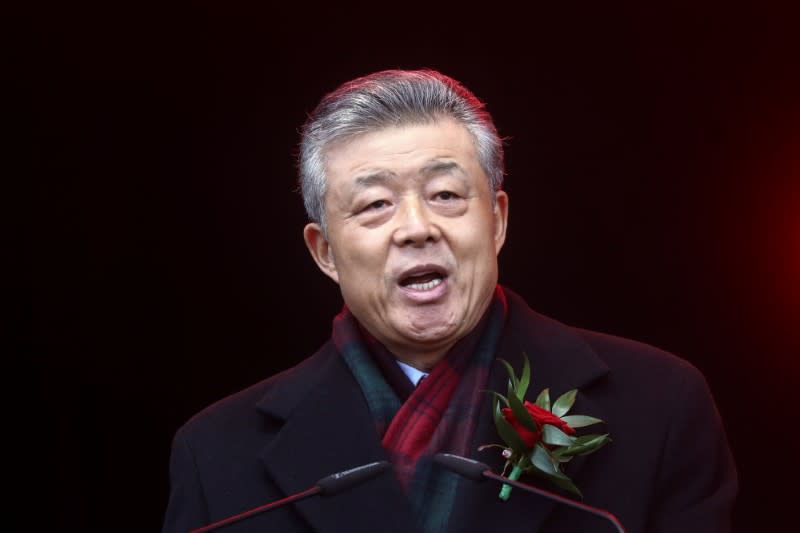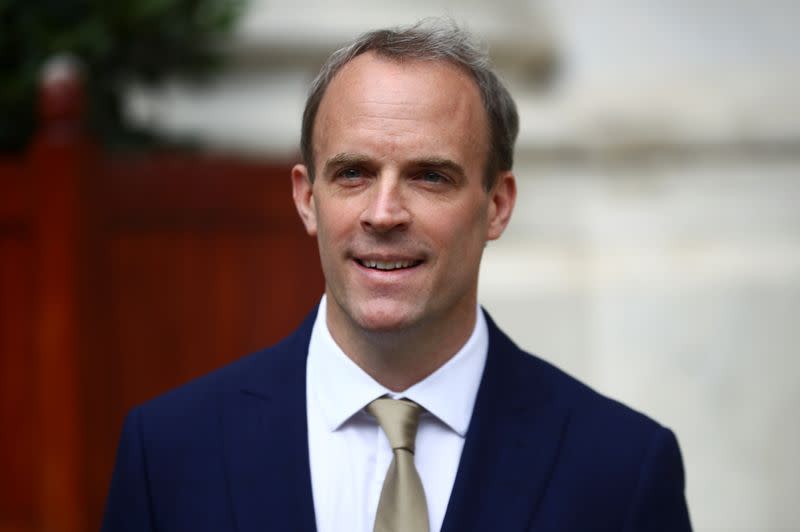China rebukes UK for 'gross interference' over Hong Kong
By Kate Holton and Michael Holden
LONDON (Reuters) - China's ambassador to London accused Britain on Monday of gross interference and making irresponsible remarks over Beijing's imposition of new security legislation in Hong Kong that he said could damage future Chinese investment.
Britain has described the security law as a "clear and serious" violation of the 1984 Joint Declaration under which it later handed back its colony to China and said London would offer around 3 million residents a path to British citizenship.
"The UK government keeps making irresponsible remarks on Hong Kong affairs," Ambassador Liu Xiaoming told reporters.
On the British offer to give British National (Overseas) (BNO) passport holders in Hong Kong a path to British citizenship, he said: "This move constitutes gross interference in China's internal affairs and openly tramples on the basic norms governing international relations."
British Foreign Secretary Dominic Raab rejected Liu's comments and said China had freely signed the Joint Declaration that guaranteed freedoms for the people of Hong Kong.
"It's a matter of trust and lots of countries around the world are asking this question: does China live up to its international obligations?" Raab told Reuters in a pooled interview.
Liu said China would decide on its response after seeing how Britain proceeded with its passport offer, and that any future decision to ban Huawei <HWT.UL> from Britain's 5G telecoms infrastructure would send a "very bad message" to Chinese companies.
CHINESE BUSINESS COMMUNITY "WATCHING"
Prime Minister Boris Johnson describes himself as a "Sinophile", but has spoken of the need to "stick up for our friends in Hong Kong".
He has also toughened his language on a provisional decision to let Huawei be involved in the development of Britain's 5G infrastructure, saying he would protect critical infrastructure from "hostile state vendors".
Johnson has faced pressure from the United States and some British lawmakers to ban the telecommunications equipment maker on security grounds, and Britain's media minister said on Monday the Huawei decision was not set in stone.
Liu said China wanted friendly relations with Britain but added that "if you want to make China a hostile country, you will have to bear the consequences"
He said a U-turn on its Huawei decision would damage Britain's image as an open, business-friendly environment.
"The China business community are all watching how you handle Huawei. If you get rid of Huawei it sends out a very bad message to other Chinese businesses," Liu said.
Hong Kong returned to China on July 1, 1997, under a "one country, two systems" formula guaranteeing wide-ranging autonomy and freedoms not enjoyed on the mainland, including an independent judiciary.
(Additional reporting by Alistair Smout, editing by Elizabeth Piper, Nick Macfie and Timothy Heritage)

 Yahoo News
Yahoo News 


